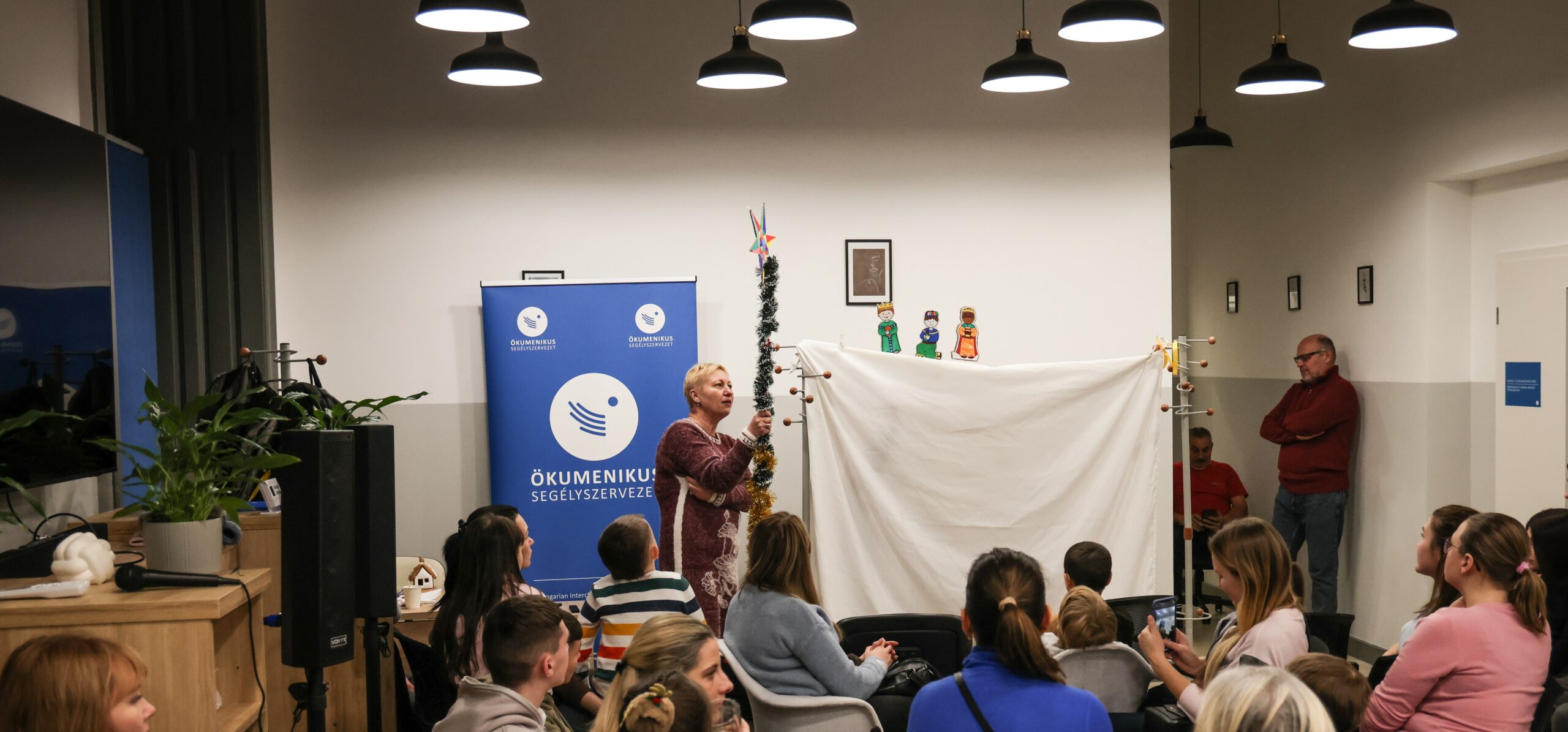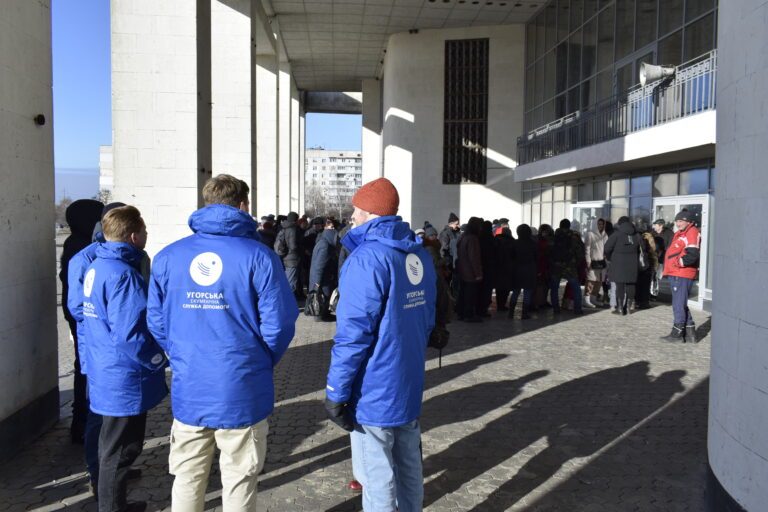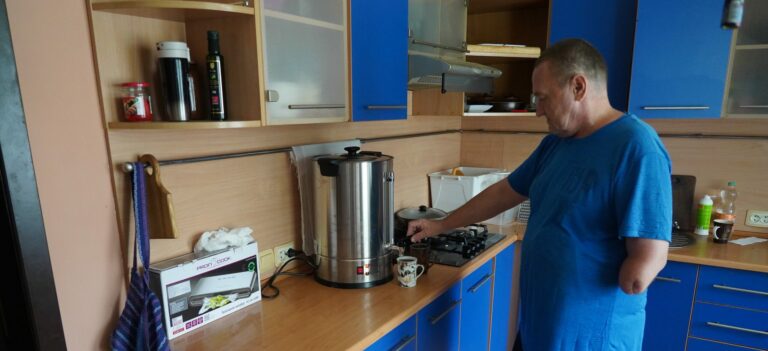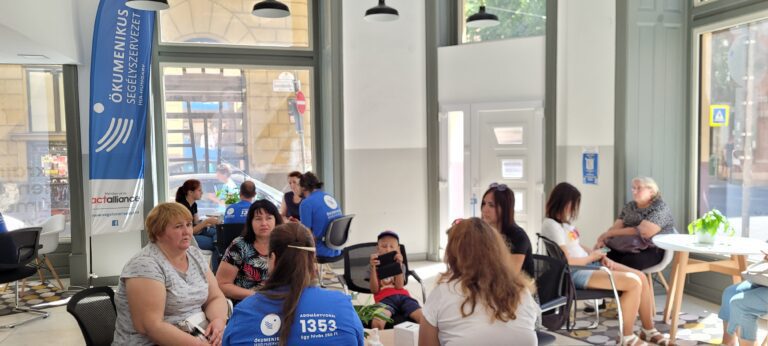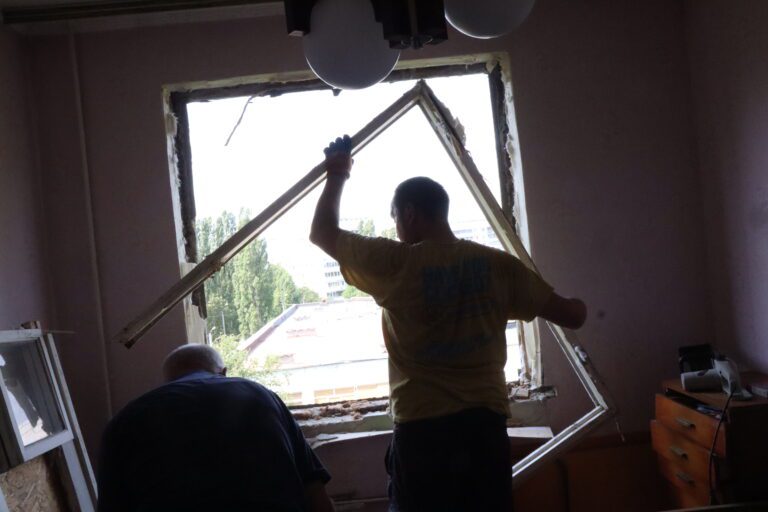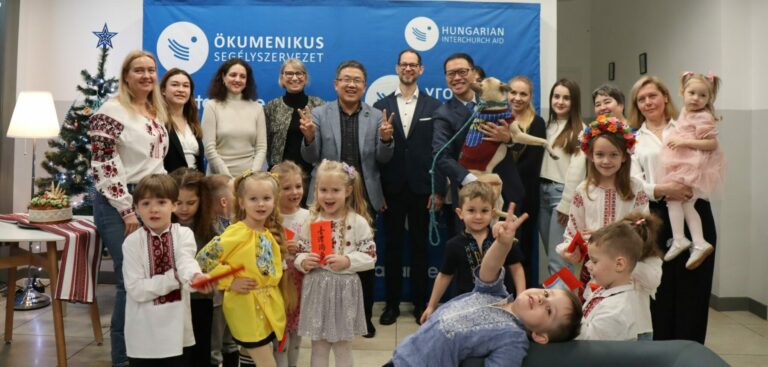Christmas Carols with Ukrainian Refugees
With Christmas around the corner, people from all over the Christian world get together to celebrate the birth of Jesus. This is no different for the refugees that arrived from Ukraine: They congregated at the Christmas event of Hungarian Interchurch Aid in the downtown of Budapest, at the Support Centre for Ukrainian Refugees already on the 20th of December. In the Ukrainian Orthodox Church, Christmas Day is on the 7th of January, but trend might be changing. We talked to a few people at the Christmas party to understand their situation better.
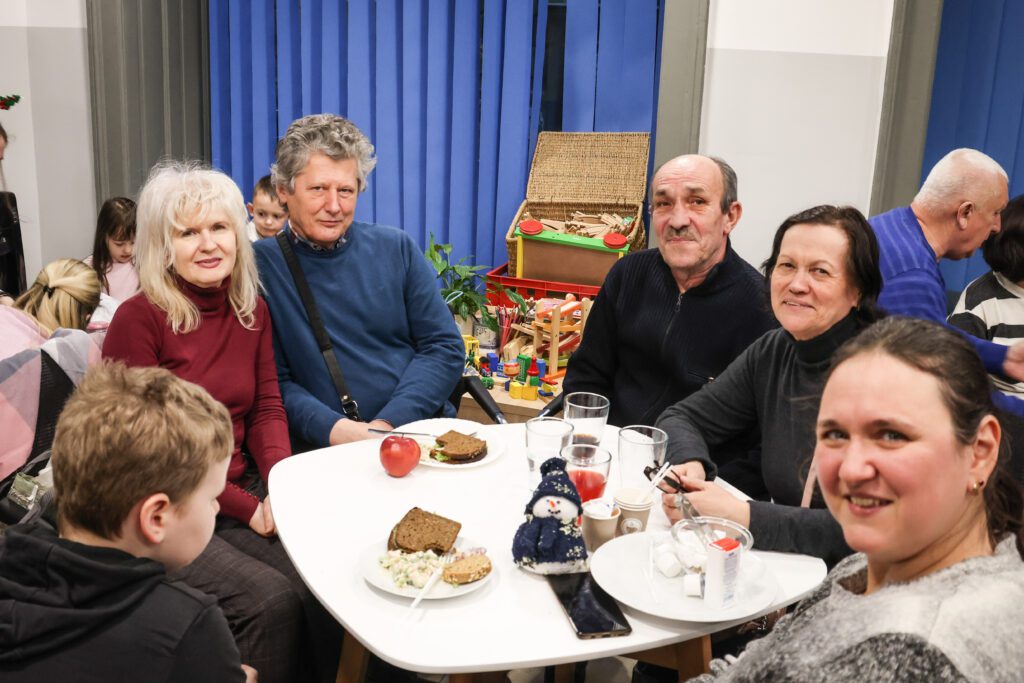

Bela and his wife, Alla [pictured left] fled Mariupol and settled in Budapest. I’ve met them before, they are regulars at the Support Centre’s events. When I ask him when they celebrate, I was surprised to learn that the date of Christmas is not set in stone in Ukraine anymore. “Since I’m a Catholic and my wife is Orthodox, we celebrate on both occasions – 25th of December and 7th of January as well. It is a trend now in Ukraine to also celebrate on the 25th in accordance with western traditions, even in the Ukrainian Orthodox church.”
His friend, Pyotr [in the middle, with mustache] joins in on the conversation. They too celebrate both occasions, even though they are both Orthodox. “We are in a transitional phase. We celebrate in December, but still we can’t forget about the old Christmas Day in January.”
Surprised by the phenomenon, I want to know if they know people who only celebrate in December. A woman, Viktoria [pictured on the right] comes to our table speaking good English, eager to explain her Christmas-situation.
“Actually, we are! It is because my birthday is on the 7th, so we very quickly decided to change to the western Christmas Day – for us it is only easier that way. Also, we live in Hungary, in a European country, and everyone around us celebrates on the 25th, and we want to join them in the festivities too.
Now we are sitting at a common table, and the interview suddenly starts to become more like a discussion among friends as we share a Christmas meal together. When I ask them, what makes Christmas Christmas for them, they all answer in unison. All of them agree – it’s the family being together that counts. Viktoria explains that being together for Ukrainian refugees is really hard, in many cases, the families are separated, some are in Ukraine, some in Europe.
“Family and being together, it is the most important part of Christmas for me. So I will open my laptop, and call them. Some of them are still in Kyiv, so we will celebrate together online. My oldest son is also there, he has exams now, but after those he might return to Hungary. He has a medical problem, so he can leave Ukraine too.”
I also want to know what kind of traditions they have, and if so, do they observe these traditions here in Hungary as well. Viktoria speaks, but the others nod along – they all seem to have similar experiences.
“We have many special dishes for that day. For example, we always make Kutia, a traditional Christmas wheat berry pudding. We mix the wheat with nuts, honey. It’s tasty but an acquired taste. But different salads, vareniki as well. We also have another tradition: the children go from house to house around the neighbourhood singing Christmas carols. Maybe the most famous one is the one called “Carol of the bells” internationally, the Ukrainian original’s name is “Shchedryk”. It was written by Ukrainian composer Leontiev based on a Ukrainian folk chant. On Christmas Day, we all go to church as a family, and light candles for those who cannot be with us. It’s a beautiful liturgy.”
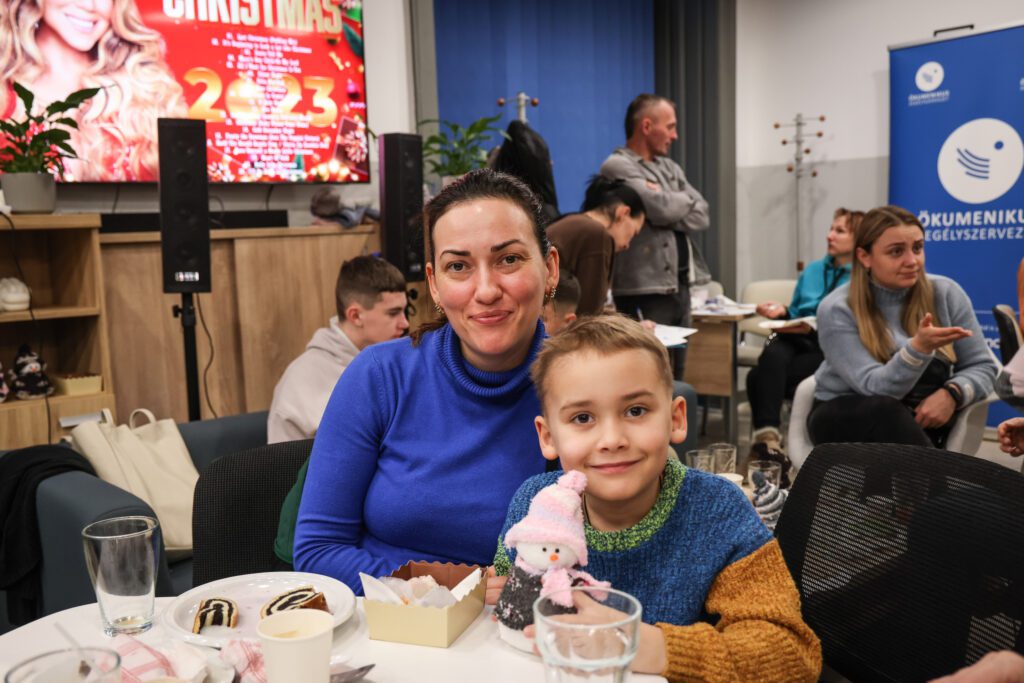

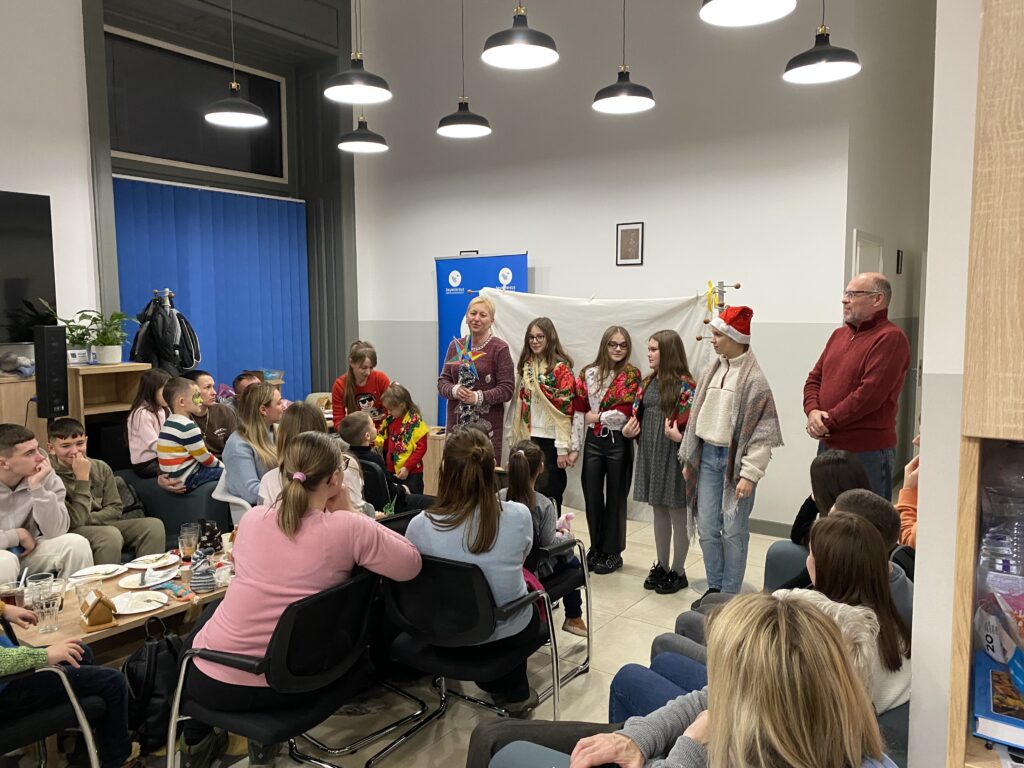

My final question is what their wish for Christmas was. The answer is predictable but nonetheless very important: “To return home, for peace to come. These are the only things we all wish to come true here.”
I thank them for their time and wish them merry Christmas too, because a little performance is about to start. A group, made up of refugee children starts singing those Christmas carols Viktoria told me about, the others join in. The real surprise comes afterwards: the little ones start singing “Mennyből az angyal”, a traditional Hungarian carol, and finish the performance off with Jingle Bells – in English.
Then, the same children disappear behind a canvas. We can only see their feet, but soon, small puppets appear on top of the canvas! It is the nativity story, a performance cheered on by the crowd of children and parents alike. Finally, all of them receive a small gift from HIA – whether they open it on the 25th or the 7th is in the end up to them.
The next day I’m at the community centre of HIA, where the smallest refugees from 3 to 8 are being taken care of during the day, similar to a day care. Here, the kids and the teachers prepared a small show for the parents and donors. The atmosphere matches the festive period, with parents proudly looking on as they watch the kids sing away to some Ukrainian carols.
At the end of the event, I have the chance to talk to a different Viktoria whose child spends the weekdays in the day care facility. She is nice and explains everything in detail to me.
“This Christmas will be very different. Now, the whole family is together – back in Ukraine, all of us were in different parts of the country. On the other hand, we are in a different country, with different customs and traditions. Unfortunately, those back home cannot celebrate as we do. It is cold and dark there. So, this is a very special Christmas for us.”
I also wonder whether they adjust to Christmas customs here, or celebrate Christmas as before in Ukraine. “We fully switched over. Saint Nicholas’ Day, Christmas, Epiphany – all of them. We do not want to celebrate with the Russians. But apart from celebrating on different days, we do as we did back in Ukraine. We go around carolling, and we host carollers, too. We believe that doing so will bring blessings to one’s family. Apart from carolling another custom we observe is the making of Kutia on Christmas Day, 2-3 different kinds.”
I thank them for their time and wish them all the best, as her little girl is anxious to play with the toys she received as a courtesy of our donors. She didn’t wait until either Christmas Day, and neither should those striving for peace. For a merry and peaceful Christmas, in Hungary, in Ukraine and in the whole world.
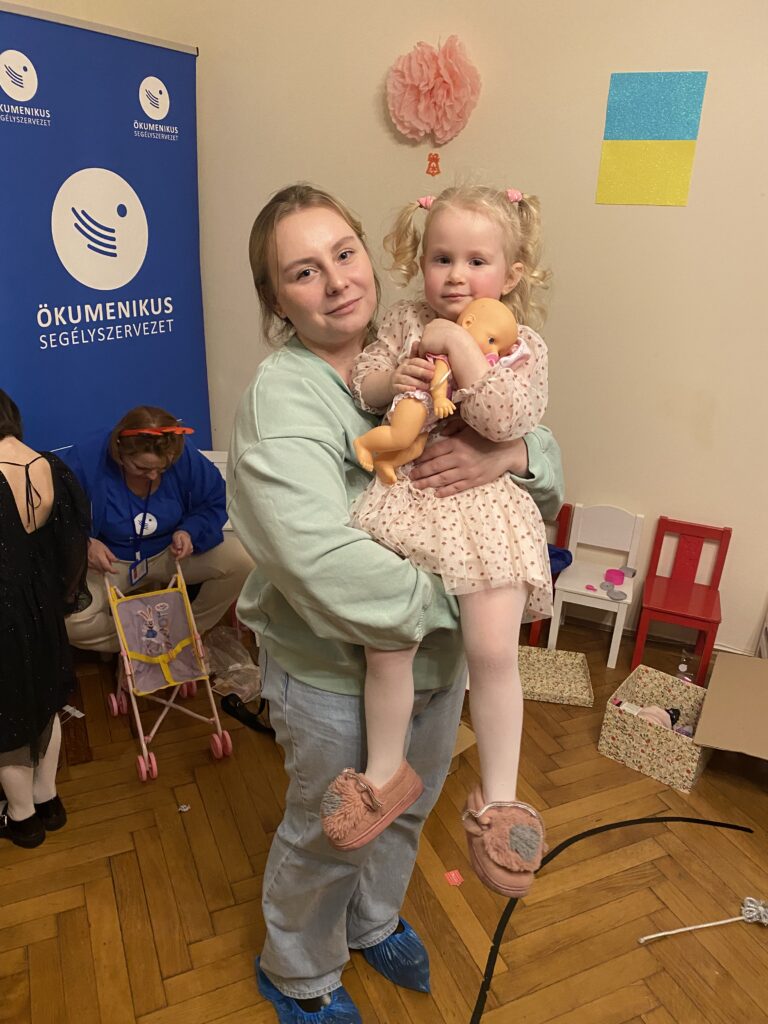

The event was organised with the financial support of the Taipei Representative Office, conveying the solidarity of the Taiwanese people towards the people fleeing the war in Ukraine.

